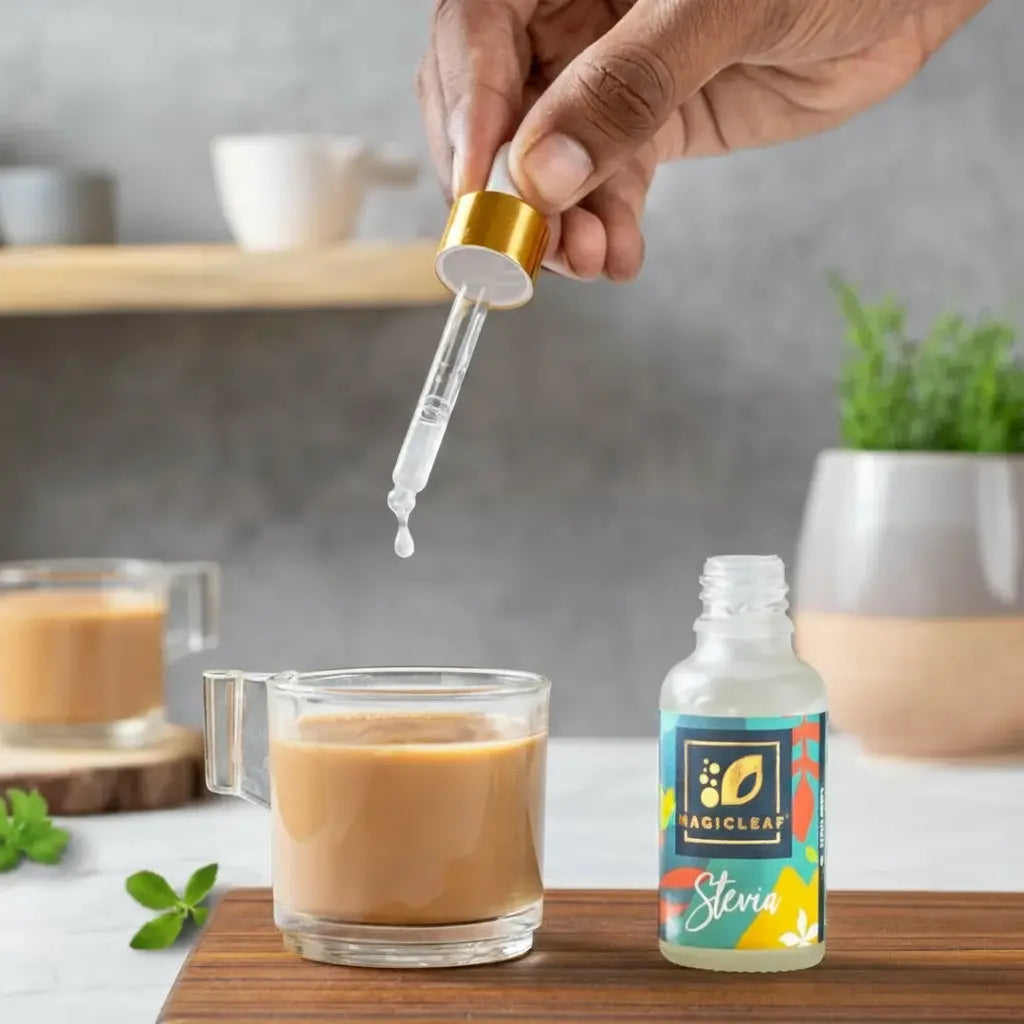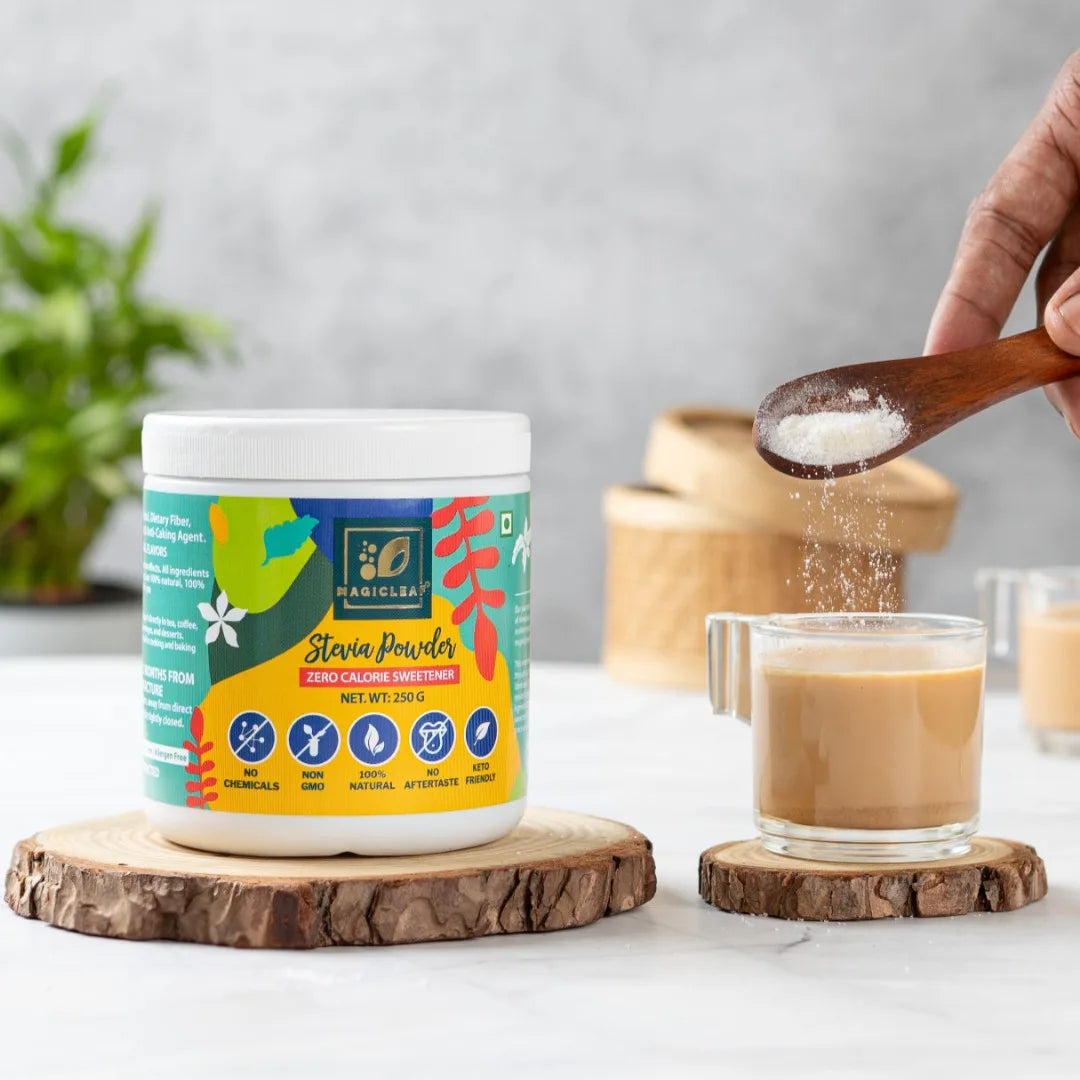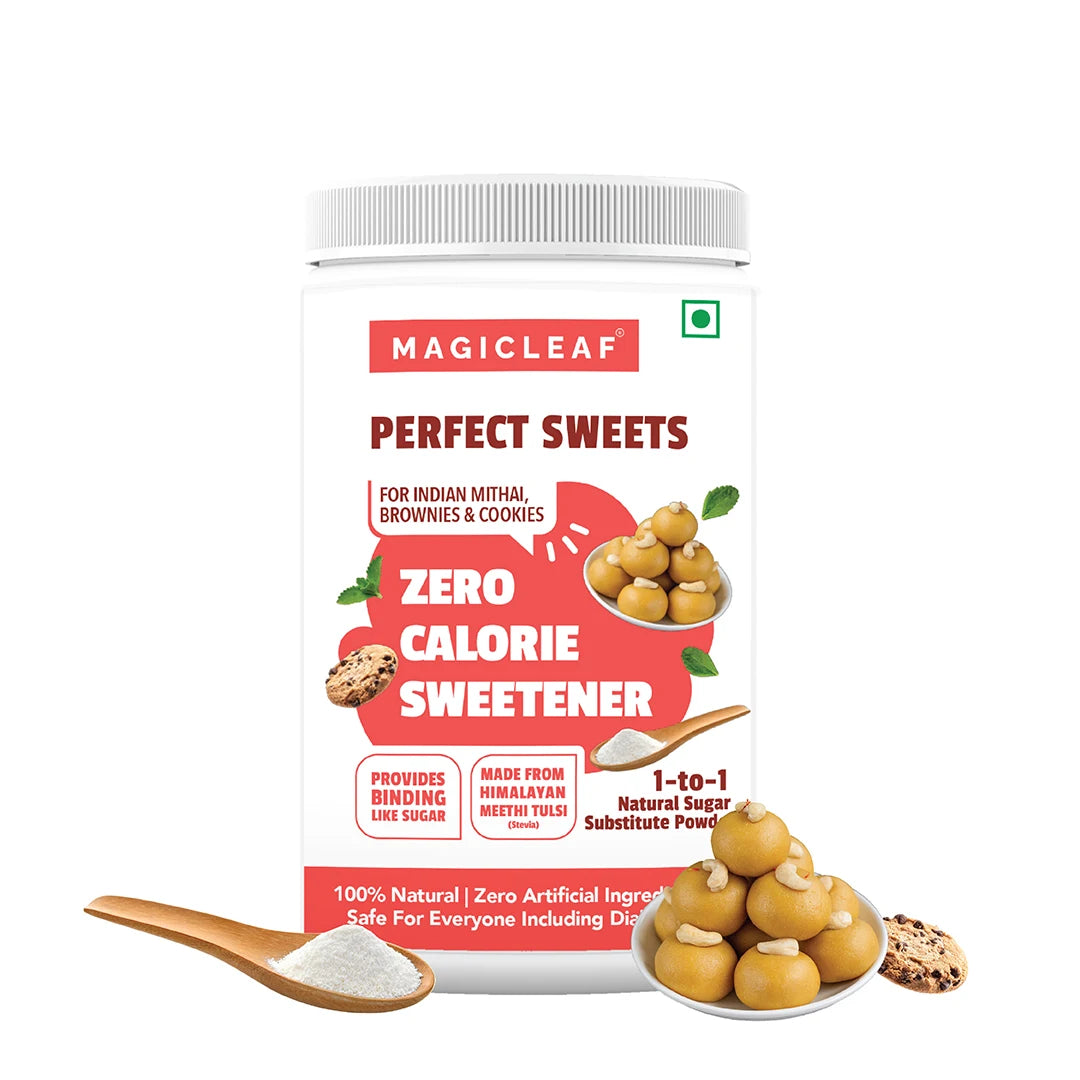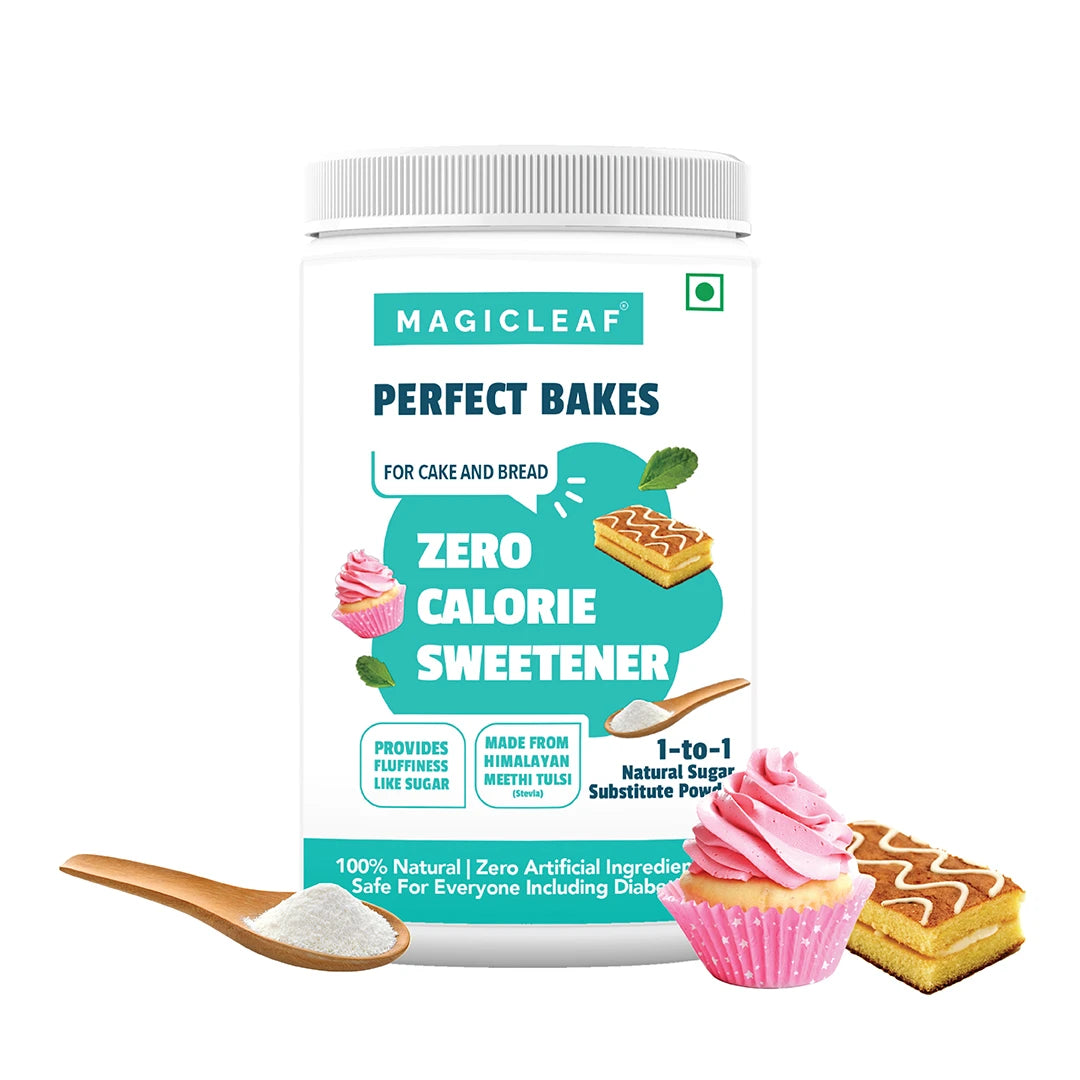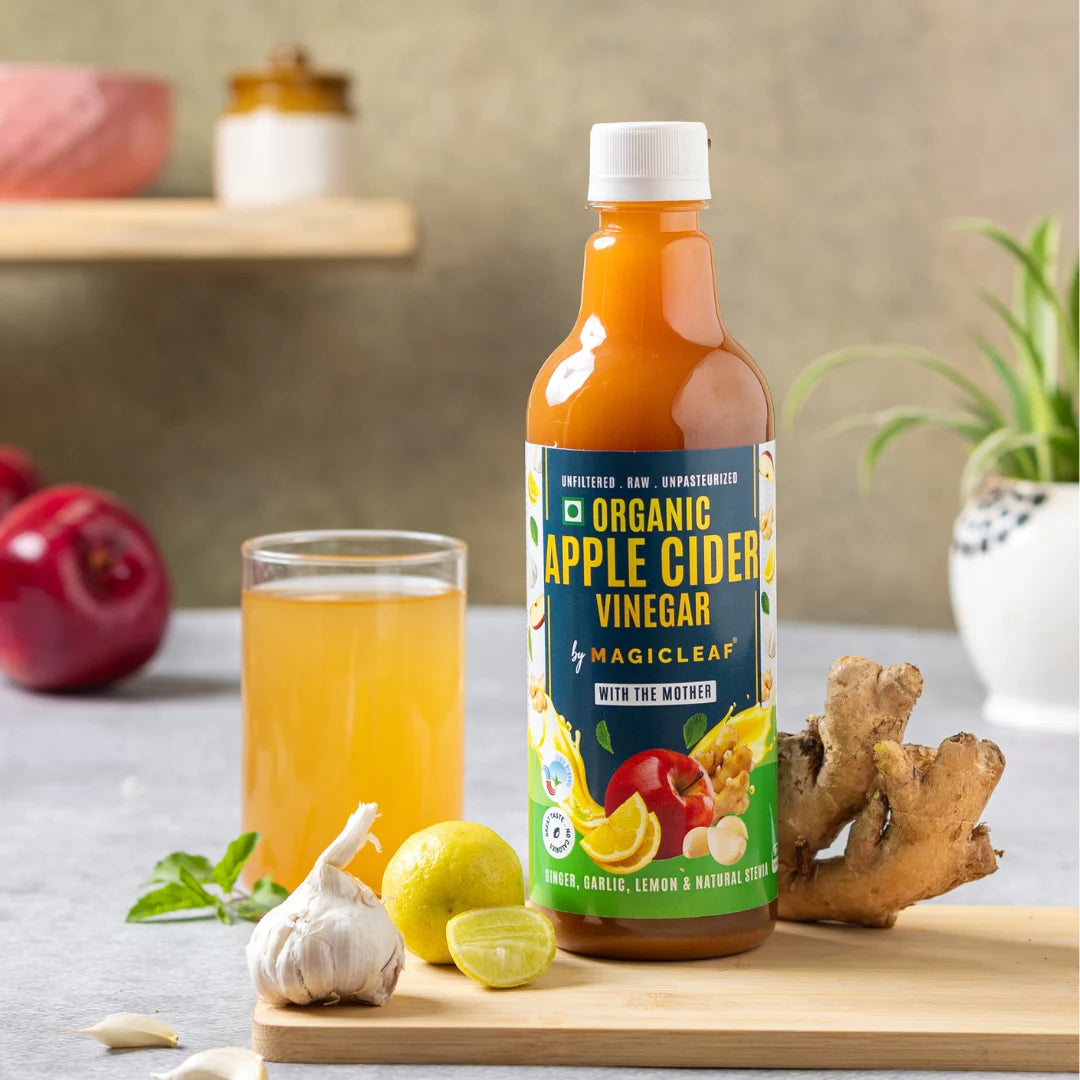Stevia is an excessive sweet-tasting plant used in sweetened beverages and tea since almost the sixteenth century. Stevia is a member of the chrysanthemum family, a subgroup of the Asteraceae family, aka ragweed family, and its scientific name is Stevia Rebaudiana. The main active compound in it is steviol glycoside. The products commonly found in the shops do not contain pure whole stevia leaf but a highly refined extract. These extracts are usually mainly stevioside and rebaudioside-A (Reb-A). They are heat stable, pH-stable, and non- fermentable.
Since the body is not metabolizing from glycosides to Stevia, these products contain virtually zero calories, similar to artificial sweeteners. Some of the extracts have a liquorice-like or bitter taste. Stevia’s taste has a longer duration than sugar and also has a slower onset than it.
History of Stevia :
The Guarani people of South America have been using this plant for more than fifteen hundred years. They call it ka’a he’ê (“sweet herb”). Traditional use of these leaves has been going on for hundreds of years in countries like Brazil, Paraguay, and Argentina in the form of sugar for tea, medicine, or sweet dishes.
During the 1900s, the United States Food and Drug Administration (FDA) did not agree with generally recognizing Stevia as safe. Hence, the plant remained banned for all uses. After the Dietary Supplement Health and Education Act of 1994, the FDA revised its stance and gave Stevia’s service permission as limited to dietary supplements and still not as a food additive.
In 1999, the European Commission also banned Stevia’s use in food products pending further research. It was not until December of 2008 that the FDA gave a no objection for GRAS status to Rebaudioside-A’s derivatives Truvia and PureVia, which although still weren’t pure Stevia, it’s highly purified extracts. There were still many hurdles in the coming years, but as of 2017, high-purity Stevia glycosides are known to be completely safe and can be used as ingredients in food products sold in the United States.
- Diabetes - Although research on how Stevia affects blood sugar in people with diabetes is inconsistent, it's a fact that stevia sweeteners do not cause any elevations in blood glucose, calories, or carbohydrates. This plant helps people with diabetes eat a more comprehensive range of food while also complying with a healthy meal plan. Glucose levels are regulated by a hormone, namely Glucagon, in the blood. The mechanism of glucagon secretion is often malfunctioning in people with diabetes. In a few studies, researchers observed that Stevia activated significant reductions in glucagon and blood glucose responses after a meal.
- Weight Loss and Control - Obesity may be caused by many factors such as lack of physical activity, the higher calorie intake of foods high in saturated fats and sugars. In fact, sugars contribute to almost 20 per cent of an average person's diet, and excess can cause weight gain. The stevia plant is a non-nutritive sweetener. It's a clear fact that it has virtually zero calories. So, anyone trying to lose weight can enormously benefit from this.
- Pancreatic Cancer - Several antioxidants and sterols are present in Stevia. The list also includes kaempferol. Kaempferol is a very prominent compound since it can alleviate the risk of pancreatic cancer by almost twenty-three per cent.
- Blood Pressure - A few of the glycosides in stevia extract exhibit the functioning of dilating blood vessels. The fact, along with studies and research, revealed that Stevia might reduce blood pressure. Moreover, it might present cardiotonic activities in which it handles the heart's rhythm and normalizes the blood pressure. However, the pieces of evidence remain limited and require further studies.
- Allergies - Glycosides present in Stevia are unreactive and do not manifest into allergies when eaten. They don't metabolize to reactive compounds only. So, they are relatively safe to consume by a large variety of people. Although Stevia is a part of the family that includes ragweed, marigold, daisies, in theory, people who are allergic to these may also be allergic to Stevia.
- Sweeten your coffee, tea, or any beverage
- Sprinkle on hot or cold cereal
- Sprinkle on unsweetened yoghurt
- Cooking with it is also possible, but one should always keep in mind the stevia-to-sugar ratio for every dish since each brand has its own, and no one likes a bitter aftertaste by using too much Stevia
- Ingredients in ice cream, bread, pickled food, sauces, candy, prepared vegetables, desserts, etc.
Things To Know About Stevia:
The FDA still hasn’t approved the use of whole or crude Stevia in food products. There’s also a concern that crude Stevia might harm our cardiovascular system, kidneys, and reproductive system. Usage may also drop blood pressure too low. Although Stevia is safe for people with diabetes, brands containing dextrose or maltodextrin should be taken with caution. A 2019 study presented a possible link between Stevia and disruption in the helpful intestinal flora. Stevia products consumed with sugar alcohols may cause digestive problems. Stevia made with Reb-A is safe to use during pregnancy.


